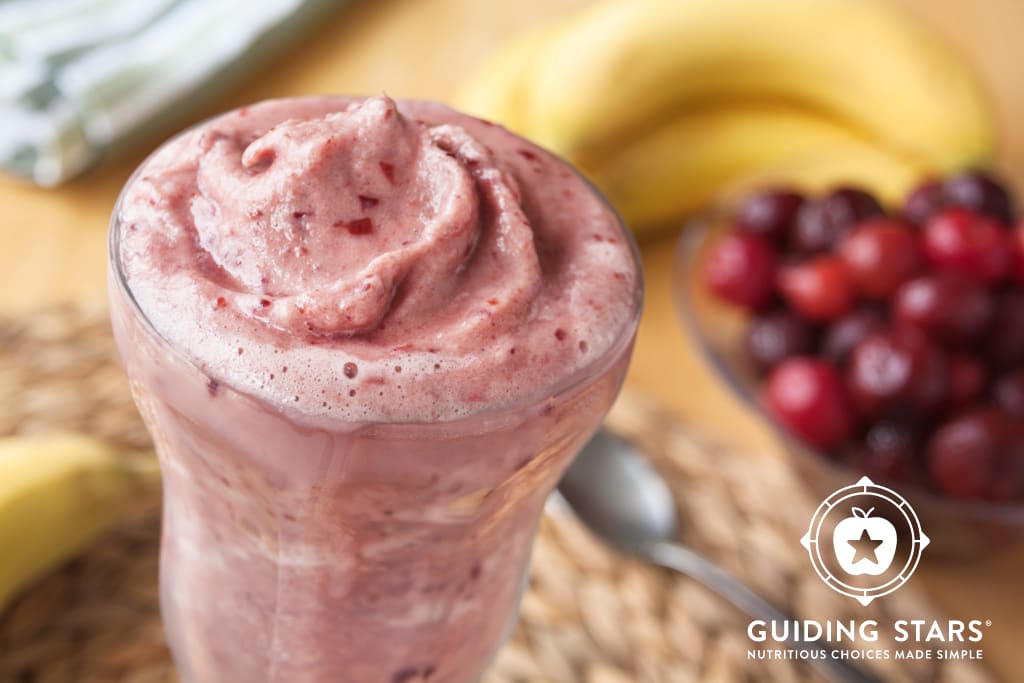We often think of the roles of food, nutrition, and exercise in maintaining a healthy weight and overall wellness, but a regular pattern of restful sleep is just as important. A good night’s sleep is essential for many reasons from the apparent (it restores us) to the complex (it helps prevent chronic disease). Indeed, something as simple as sleep is about way more than being cozy under the covers. It’s about preventing chronic diseases like type 2 diabetes, cardiovascular disease, obesity, and depression. Many of us are seeking a better night’s sleep and turn to the pharmacy for the answer. However, we need not look any further than our kitchen.
Cherry Banana Smoothie
Rich in potassium, melatonin, and fiber, this smoothie is a smart mini-meal to include in a diet designed for restful sleep.
View recipe »Lack of sleep leaves us tired, which can lead to the double impact of making us more likely to make poor eating choices and likely to turn to food to stay awake. There are some nutrients that play a key role in encouraging a healthy night of sleep.
Potassium
Reach for a small, potassium-rich banana before bedtime and you can induce muscle relaxation and increase your chances of having more restful sleep with less waking up during the night. Include other sources of potassium like potatoes, dried fruit, spinach, oranges, and almonds in your regular diet to maintain adequate levels of this important nutrient.
Magnesium
The micronutrient magnesium is critical for our bodies for many reasons, including encouraging better sleep and improved sleep quality. Magnesium has a positive impact on neurotransmitters that promote and play a role in supporting sound sleep, while a deficiency in magnesium may increase potential for sleep disorders and interrupted rest. Foods rich in magnesium include seafood, green leafy vegetables, fruits, nuts, and legumes.
Tryptophan
The unique science behind the amino acid tryptophan (found in protein) makes it a valuable part of diet for better sleep. Seek tryptophan in animal and plant-based proteins like meat, fish, chicken, and dairy, as well as some grains, seeds, nuts, and legumes.
Melatonin
The hormone melatonin is known to help us regulate our sleep cycle and get better rest. Food sources of melatonin include tomatoes, cherries, grapes, oats, and walnuts. Reach for these foods whenever possible rather than a melatonin supplement.
Fiber (Prebiotics)
The research is emerging, but it seems that the influence of prebiotic fiber on the gut may improve sleep by positively influencing gut flora. Sleep researchers also report that lack of fiber may inhibit restorative sleep.
The Right Fat
We know that a balanced diet rich in beneficial nutrients encourages better sleep, but did you know that a diet high in saturated fat may lead to disrupted sleep? According to a 2016 study, a diet rich in saturated fat is correlated with less slow wave sleep (our deepest sleep).
There are other things you can do to increase your chances of having a restful night sleep like enjoying some calming tea or shifting the timing of meals. You can also make one of these recipes that includes the nutrients needed for better sleep:
